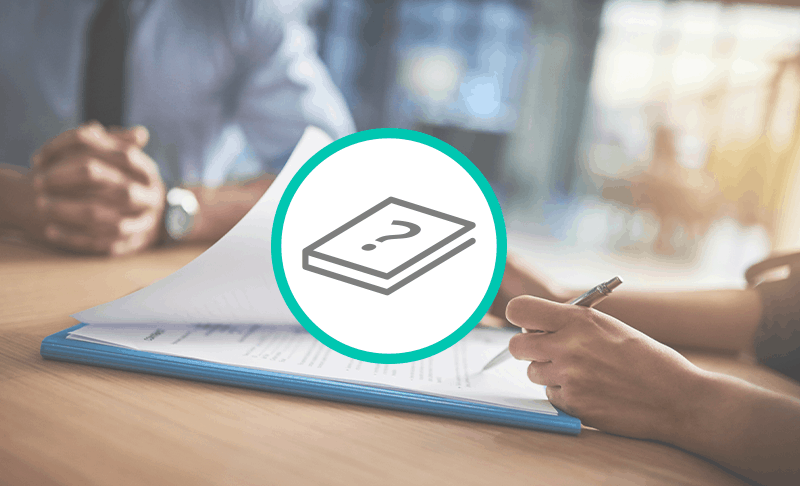
What Is A Lien? How To Check For A Lien On A Vehicle
Checking for outstanding liens is important when buying or selling a vehicle because it’s pretty common for a car to have one in Canada. If you aren’t aware of a lien before you purchase a car, you could end up being responsible for rectifying it. To ensure you’re making informed decisions when buying a used car, we’ve outlined what a lien on a vehicle is and how it could affect your car-buying experience:
KEY TAKEAWAYS
- A lien is a financial interest in a vehicle that’s granted to someone else other than the car’s owner. This could be a bank, creditor, or an individual.
- If you default on the loan for any reason, the lien gives the lienholder an opening to repossess the car.
- The most common types of liens are bank liens, judgment liens, mechanic’s liens, real estate liens, and tax liens.
- You can check for car liens by searching property registrations, CARFAX Canada, or asking the seller
- You can sell a car with a lien to a private buyer or to a dealership.
- There are pros and cons of liens depending on whether you’re the lender or the borrower.
WHAT IS A LIEN?
Before diving into the finer points of liens, let’s look at the central question: What is a lien on a vehicle?
In simple terms, a lien is a financial interest in a vehicle that’s granted to someone else other than the car’s owner. This could be a bank, creditor, or an individual.
A lien on a car usually exists to secure a loan where the vehicle serves as collateral. So, if you’re buying a new or used car the bank or the financing company would register a lien against the vehicle. If you default on the loan for any reason, the lien gives the lienholder an opening to repossess the car.
Liens that are registered against a vehicle in connection with a debt stay in place until that debt is repaid. Cars can have multiple liens at the same time. For example, if you take your car to a garage for repairs, the garage could enforce a mechanic’s lien until you pay the bill.
HOW LIENS WORK
Wondering how a lien works? In a nutshell, a lien provides a creditor the legal right to repossess and sell the property of someone who fails to meet the obligations of a loan (or other contract). This means you are not able to sell any property with a lien unless there’s a mutual agreement between you and the lien holder.
Liens can be voluntary or involuntary. For example, a borrower may voluntarily agree to a lien on their mortgage. On the other hand, liens can be created involuntarily, such as when a debt has not been paid and the creditor seeks legal action. A court can also place a lien on assets such as property or bank accounts.
A lien can also be filed with the government, which lets the public know that the lien must be released before the asset can be officially sold to someone else. This is why most banks or financial institutions require a title search before issuing a mortgage—to confirm whether or not there are any liens on the property.
TYPES OF LIENS
When it comes to liens and lien holders, there are various types because they can be put in place by multiple sources—financial institutions, businesses, courts, and the government. These are the most common types:
Bank Liens:
A bank lien is created from time to time when someone borrows from a bank to purchase an asset, such as a car. When you get a loan to buy a car through a bank, the dealer is paid from the borrowed funds. Banks will sometimes add a lien on the vehicle in case you aren’t able to repay the loan, which means the bank can then seize the vehicle and sell it to repay the remainder of the loan. In the case that you repay the loan in full, the bank will release the lien and you’ll own your car free and clear.
Judgment Liens:
The court will sometimes order a judgment lien on your assets as a result of legal scenarios such as a lawsuit. This type of lien gives the creditor the right to seize your assets if you are not able to pay your debt and it can remain in place until the debt has been fully paid off. These types of liens can negatively impact your credit report.
Mechanic’s Liens:
If you do not pay service providers (builders, contractors, suppliers, etc.), a mechanic’s lien can be attached to your property or other assets. The service provider can go to court and get a judgment ordering a lien to act as collateral until the debt is paid. If the debt is never settled, the lien could lead to a forced sale of the property.
Real Estate Liens:
A real estate lien is defined as the legal right to seize and sell a piece of property if a contract is not fulfilled. Sometimes these types of liens are automatically put in place when you take out a mortgage to buy a house. Once the mortgage is paid off, the lender releases the lien. Real estate liens can also be involuntary if a court decides to force one to ensure a debt is paid.
Tax Liens:
CRA will sometimes place a tax lien over an individual’s private property in order to collect owed tax money. Before a lien is placed, CRA must be able to legally certify the amount you owe and obtain a judgment from the Federal Court. It’s also important to note that tax liens will go on your public record.
How to check for a lien on a car?
If you’re buying a car from a dealership, registered dealers are legally required to remove liens from used cars.
But if you want extra reassurance that a car is lien-free, or you’re buying a vehicle through a private sale, you can take the step of checking for vehicle liens yourself. You’ll need the vehicle identification number (VIN) to search for liens.
You can check for car liens by:
- Searching property registration records by province.
- Conducting a search through CARFAX Canada.
- Asking the seller directly to disclose lien records.
Some provinces require sellers to make lien history accessible to buyers but it’s still a good idea to do your own research. And remember that a car could have a lien in more than one province so it may be worth your time to perform multiple searches.
If you’re buying a car with a lien from a private seller, it’s up to you to make sure they hold up their end of the bargain and pay off the lien. Getting a written agreement specifying what they’ll pay off and when can give you some legal protection. Otherwise, the debt linked to the lien could follow the vehicle even if you’re the new owner.
Selling a vehicle with a lien
If you own a financed vehicle that has a lien against it, your first question might be: can I sell a car with a lien?
Technically, the answer is yes but selling the vehicle doesn’t free you from your obligation to repay the debt associated with the lien. You would have to pay off the debt, either from cash reserves or the proceeds of the sale, for a lien to be removed.
You could sell a car with a lien to a private buyer or to a dealership. A dealership could make the process smoother by either giving you cash for your trade-in or allowing you to restructure the lien debt into a new loan when you buy another vehicle.
If you want to sell a car with a lien against it, consider these things first:
- What is the car worth?
- How much is owed on your current car loan?
- How much money would you need to pay off the debt?
- Would selling allow you to clear the debt and turn a profit?
Assuming you aren’t underwater on the car, then selling could help you pay off the debt and pocket a little money. But if the car is worth less than what you owe, you may have to come up with cash to pay any shortfall between the vehicle’s value and the loan balance.
The pros and cons to liens
The pros and cons of liens depend on whether you’re the lender or the borrower.
For the lender, the chief pros of liens are:
- Security for the loan itself.
- Reassurance that the loan won’t be a total financial loss if you default.
On the cons side, the drawbacks of liens can apply to car buyers and sellers:
- If you’re trying to sell a car, you’ll have to pay the debt to clear the lien and finalize the sale.
- If you’re buying a car with a lien and the seller doesn’t pay off the debt, the debt then becomes yours.
In the worst-case scenario, you could buy a car with a lien on it and the lienholder decides to repossess. You’d be out of a vehicle and out of the money you put down and the monthly payments you made if you financed your used car purchase.
CONCLUSION
If you’ve purchased a used vehicle and found out about a lien after the fact, it’s still important to contact the seller and lender to discuss the current lien situation. Even though it’s not possible to make the original owner pay, you should still be informed of the lien terms and work to get the lien released. You need to do this before you can legally drive your new vehicle.
If you’re looking for a new or used vehicle, consider Birchwood Credit Solutions. We have an extensive inventory of cars, trucks, SUVs and crossovers. Go online today to apply for a pre-approved car loan.



